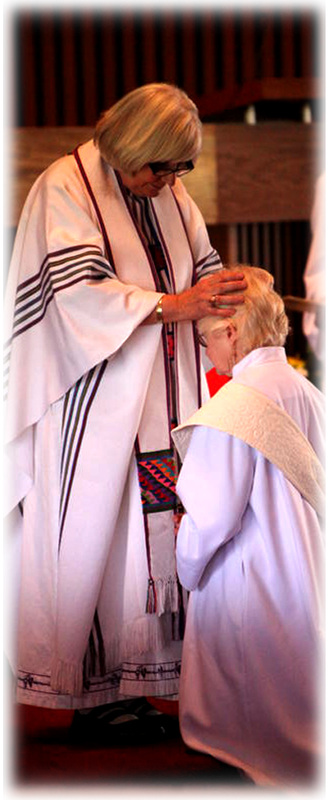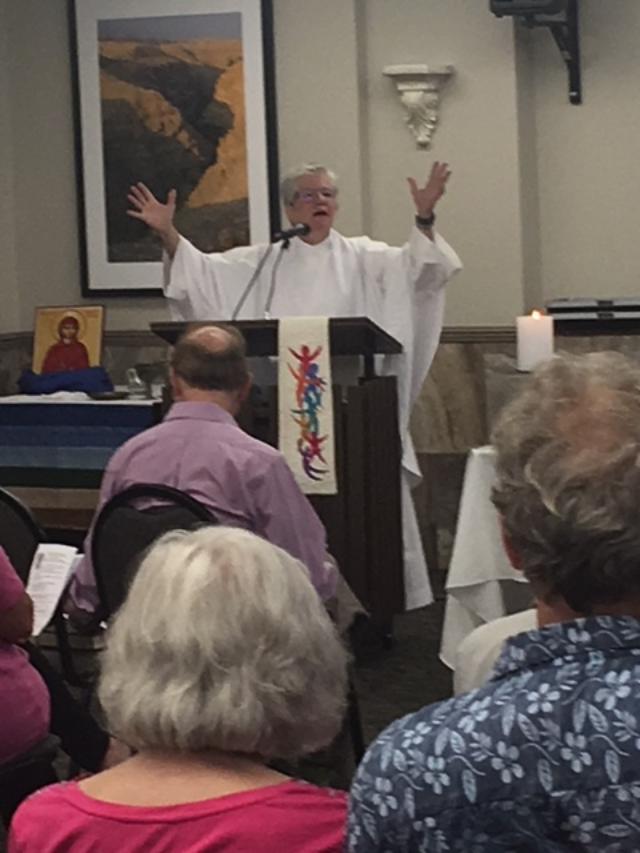by Helen Weber-McReynolds, RCWP
Gen 21: 8-1-, 14-21; Ps. 128; Gal 4: 4-7; Matt 2: 13-15, 19-23
When we used to celebrate the Feast of the Holy Family when I was younger, I remember the message usually being that the Holy Family was perfect in every way and we, especially children, should aspire to be perfect as they were. We were told to be obedient to our parents, and never argue with our siblings, and always behave like angels in school. And I remember thinking that perfection was way too much to expect. I thought, if no fighting with them was expected, God should have given me different sisters.
Of course, now we are all adults and my sisters and I are all very close friends. And now, as an adult, I also realize that no family’s life is perfect, not even that of Mary, Joseph, and Jesus. Being a family can be very messy! And our readings certainly illustrate this.
Starting with the first reading, from Genesis, we see complications and drama from the very beginning. Abraham had two wives, with the tension between them; and two sons; and Abraham is left with the agonizing decision of choosing between them. This story also mentions slavery, sexual exploitation, infertility, jealousy, domination, and verbal or physical abuse. Abraham and Sarah’s family life was certainly filled with controversy and passion. Far from perfect. Yet Abraham and Sarah are considered the father and mother of our faith. They established the covenant from which descended the people of Israel.
Then in our Gospel, we recall the story of the Flight into Egypt. The story of Mary, Joseph, and Jesus truly is the definition of a refugee family, leaving everything and everyone behind to prevent their son being killed by a corrupt ruler. If we read between the lines here, we can almost hear the tortured decision-making Mary and Joseph must have gone through. What should they do? Where should they go? Would they be safe in Egypt? How long would they have to stay? Would they be able to make a living there? Would they ever see their families again? The author of Matthew’s gospel uses the literary device of an angel delivering these messages, and maybe that happened, but I would bet it was not that easy for Mary and Joseph to discern God’s will for them. Our friend Angela remarked the other day that she wished Mary had kept a diary and she wished she had a copy of it. That would have helped make many confusing aspects of Mary and Joseph’s story much clearer. What we do know is that they were brave enough to cooperate with God in delivering the Messiah, the human incarnation of God, the Christ.
So these are not idealized families, but real flesh-and-blood families with problems we can relate to. Yet they managed to do God’s will and deliver God’s message, and even God’s son, to all of us. And because Jesus was born, both human, and divine, he made all of us part of God’s family. Our second reading brings this together. In it, we heard Paul say: “When the fullness of time had come, God sent from God’s own being, a child, born of a woman… so that all might be adopted by God… we are all God’s offspring, God’s own.” We know that Jesus worked to create a new family of God for all those who had no family. And now it is up to us to continue that work. To try to somehow make everyone we contact feel included and loved, no matter who they are. It’s a tall order, but we have one another to work with, all our family members to share the load. The world is full of drama and human complications, but our job is to try to clear those aside, and help continue the ongoing birth of Christ every day.
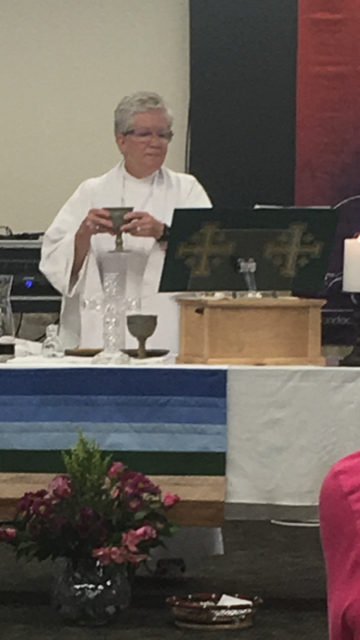
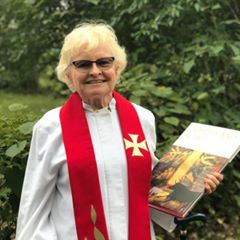
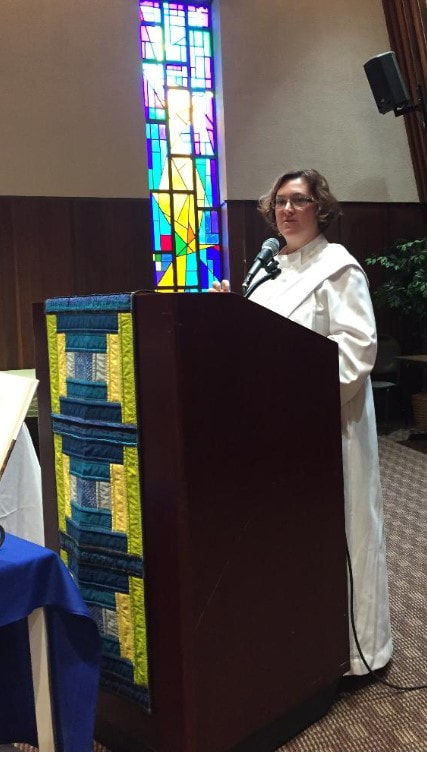
 RSS Feed
RSS Feed
